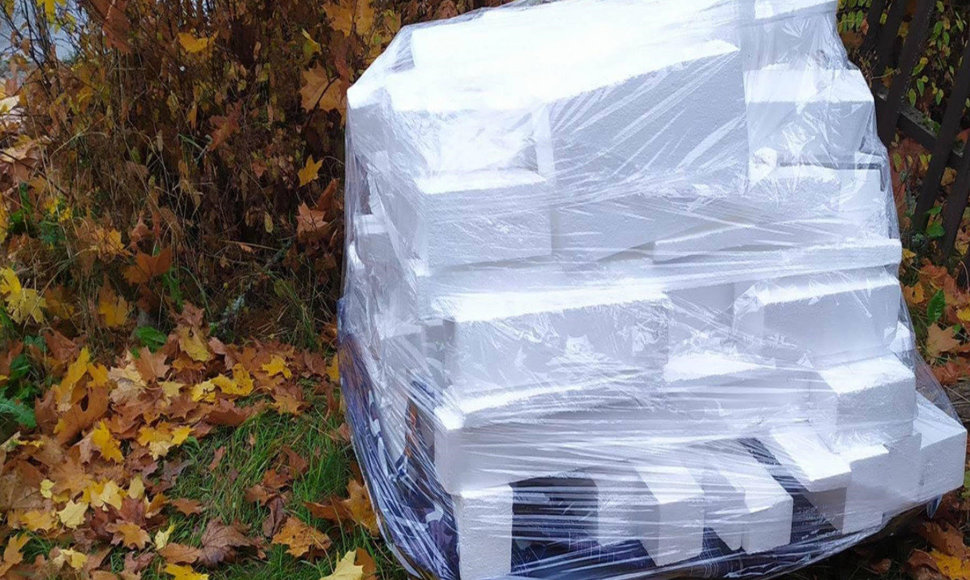“EPS is the greenest out of all the main insulation materials used in Lithuania as it requires little energy to produce and it can be easily recycled and used to make new EPS. Having gained the status of waste managers this year, the Association members offer the society to contribute to the development of circular economy in Lithuania and give EPS scraps for recycling,” says Saulius Skrodenis, President of the LEPA.
According to Saulius Skrodenis, Lithuanians have started paying much more attention to both the construction product quality and its environmental impact throughout its entire life cycle. EPS is the most popular thermal insulation material in Lithuania.
The Lithuanian Expanded Polystyrene Association was established in 1998 for the purpose of providing reliable information about EPS characteristics and proper use to society and construction market participants. Such EPS manufacturers as Šilputa, Kauno Šilas, BalPol and Ukmergės Gelžbetonis are members of the LEPA.
The 70-year-long road to the circular economy
EPS was invented 70 years ago. It can be recycled many times without losing its characteristic qualities. For several decades now, EPS has been recycled worldwide and is becoming a raw material that is later used for the manufacture of EPS or extruded polystyrene XPS. EPS is used in many areas of human activity due to its high thermal insulation qualities, durability and lightness.
EPS is recycled in two stages. The LEPA members use a cutting machine and a press that allows compressing pieces of EPS into blocks intended for Lithuanian and foreign partners. The main partner of the LEPA is R@R Ideas, operating in Kaunas, which processes pressed EPS into polystyrene beads used to manufacture new EPS or XPS products.
The beads of up to 1.5 mm in diameter are heated in the future product form, making their volume increase up to 50 times. Expanded polystyrene has 98% air and 2% polystyrene. EPS for construction purposes is manufactured in large blocks to be cut as needed later.
Having patented EPS 70 years ago, the German chemical company BASF has already developed pyrolysis technology which decomposes EPS into primary chemical substances at high temperatures.
Favourable situation and far-reaching goals
Saulius Skrodenis says that the changes in Lithuania and entire Europe encourage EPS manufacturers to go in for circularity.
The Waste Prevention and Management Framework prepared by the Ministry of Environment sets forth mandatory rules for everyone (not only construction companies but residents as well) to sort construction waste as of 2023. People will no longer be allowed to throw out home renovation rubbish into mixed waste containers or to leave such waste by the garbage bins. This waste must be taken to bulky waste collection sites.
“We should follow the example of the Nordic countries and sort our waste carefully. Denmark started collecting EPS waste for recycling back in 1995. Though initiated by the EPS manufacturers, now EPS collection is popular among other market participants as well and, most importantly, the municipalities,” says Saulius Skrodenis, President of the LEPA.
In Denmark, EPS is collected separately from other waste in 40 municipalities, whereas many as 47% of all the residents in the country reside. A total of 17 municipalities are preparing to separate EPS from the general waste flow and 21 municipalities are being consulted by the EPS industry representatives on how to achieve it.
“This is why this year we took part in the project, initiated by the Ministry of Environment and the Nordic Council of Ministers. The goal of this project is to introduce the waste labelling system used in the European Nordic countries to Lithuania. The introduction of this system would be a great step towards reducing the distance between ours and the greenest countries,” says Saulius Skrodenis.
According to the research data of the Danish Environmental Protection Agency, recycling of 1 kg of EPS saves 1.8 kg of CO2, compared to the manufacture of an entirely new EPS product.
The European Manufacturers of Expanded Polystyrene (EUMEPS) has undertaken the obligation to ensure that the European EPS industry recycles as much as 46% of EPS waste by 2025. The LEPA is a member of the EUMEPS.
All EPS required for construction in Lithuania is manufactured in various locations in Lithuania. This and the lightweight nature of EPS means that the EPS supply chain is very short and eco-friendly. Also, the members of the LEPA implement renewable energy projects, making their products even greener.
“We are now inviting the whole society to be proactive, join the EPS sorting initiative and supply EPS for recycling so that the environmental impact of human activities is as small as possible,” says Saulius Skrodenis. He notes that only clean and properly packaged EPS waste should be delivered for recycling.
The studies ordered by the German governmental institutions (in 2019 and 2020) highlighted the exceptional eco-friendly qualities of the EPS insulation materials throughout its cycle. In most of its areas of use, EPS insulation materials are considered the most environmentally friendly alternative, compared to other mineral and synthetic materials.
Several years ago the British scientists studied the effects of the main external wall insulation materials on the environment. As many as sixteen criteria were assessed. The results revealed that fourteen of those criteria marked EPS as having the lowest impact on the environment.
A team of Polish specialists studied the impact of external thermal insulation systems on the environment based on nine environmental indicators and determined that EPS had the lowest environmental effect, including climate change effects.
----------------------Translated by MP Translations Agency in Kaunas.












